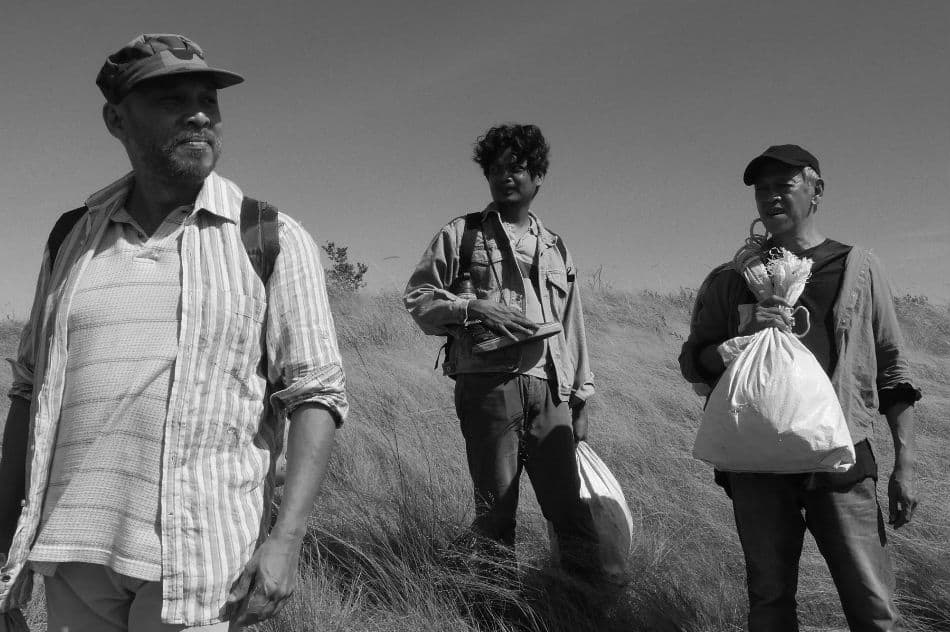
After months of toiling in the mines, Baldo (Nanding Josef), Paulo (Bart Guingona), and Andres (Don Melvin Boongaling) journey back to their hometown of Hugaw Island. Hugaw means dirt in the Bisaya language, and it is home to stories and myths of Japanese soldiers and ominous black horses.
Director Lav Diaz’s camera is reluctant to command, assuming the eye of an unobtrusive, almost disinterested, observer. Under his gaze, the characters of Genus Pan (2020) present as a tired, frustrated, and resigned group. Scenes neither accelerate nor slow the events they depict. Though Diaz may have intended for the viewer to come upon an uninterrupted world, the theatrical set up of its scenes anticipates movement, and the dialogue make discourse explicit. The latter may also grate on those who prefer to be persuaded in more subtle ways.

With little spectacle, and no sympathy on the go, Genus Pan could be a tiresome watch. But as a portrayal of poverty and marginalisation, the spaces and sounds it captures by the sea, in the jungle, through the fields, and within the village, and its unembellished characterisation, make for an affective and thought-provoking read.
The bestial nature of mankind, referred to in the title, is a key theme that manifests in instances of violence in the film. It was hard to see where Diaz was going, beyond the proposition that man is like an animal. Without the relentless pursuit of a theme, symbols were scattered off-centre, and the film was a little less haunting.
At 147 minutes, Genus Pan seemed like the beginning of an essay. Diaz is a tenacious filmmaker, and perhaps we might come full circle in the years ahead.
-
Genus Pan screened at the 31st Singapore International Film Festival in its Southeast Asia Premiere.